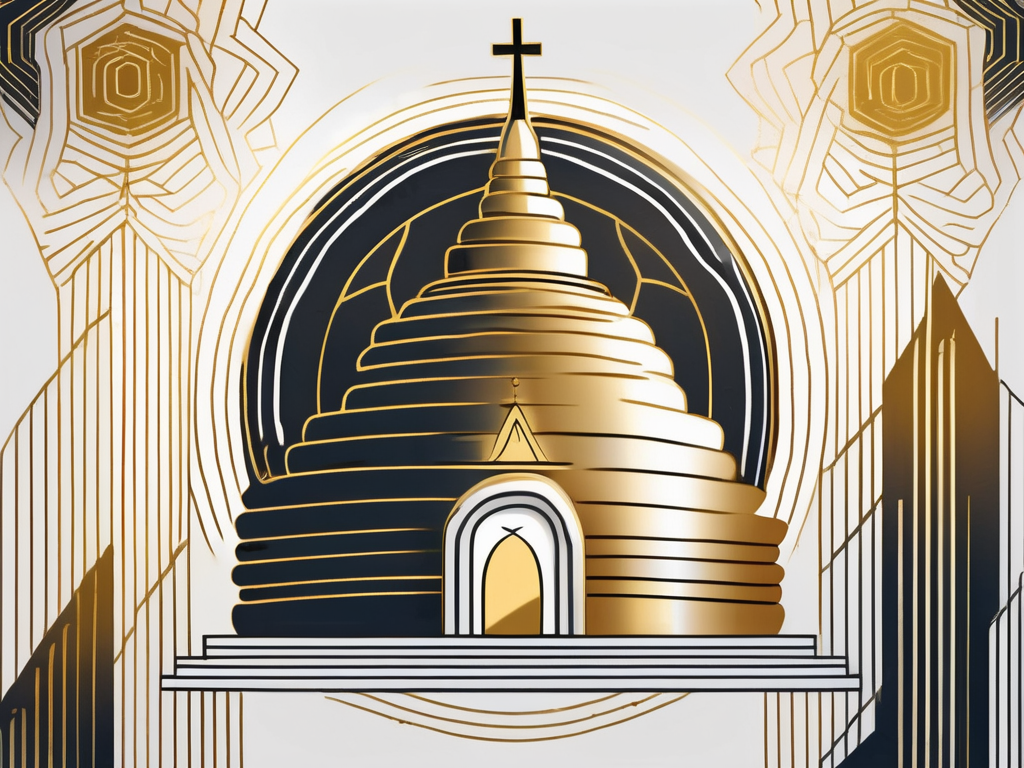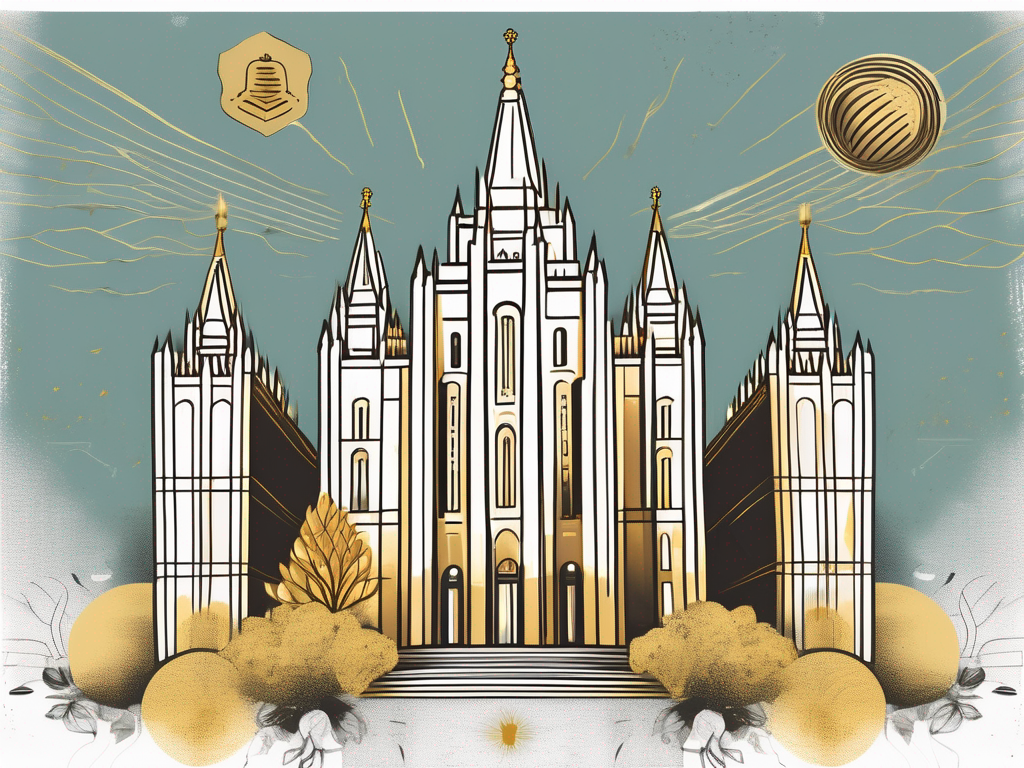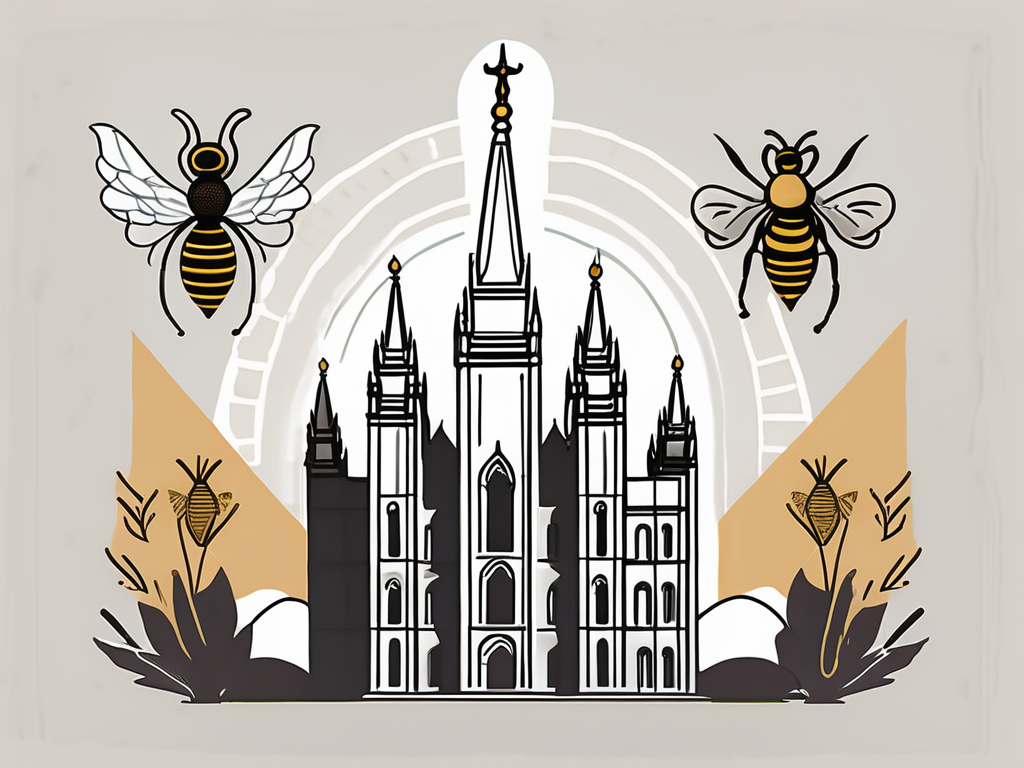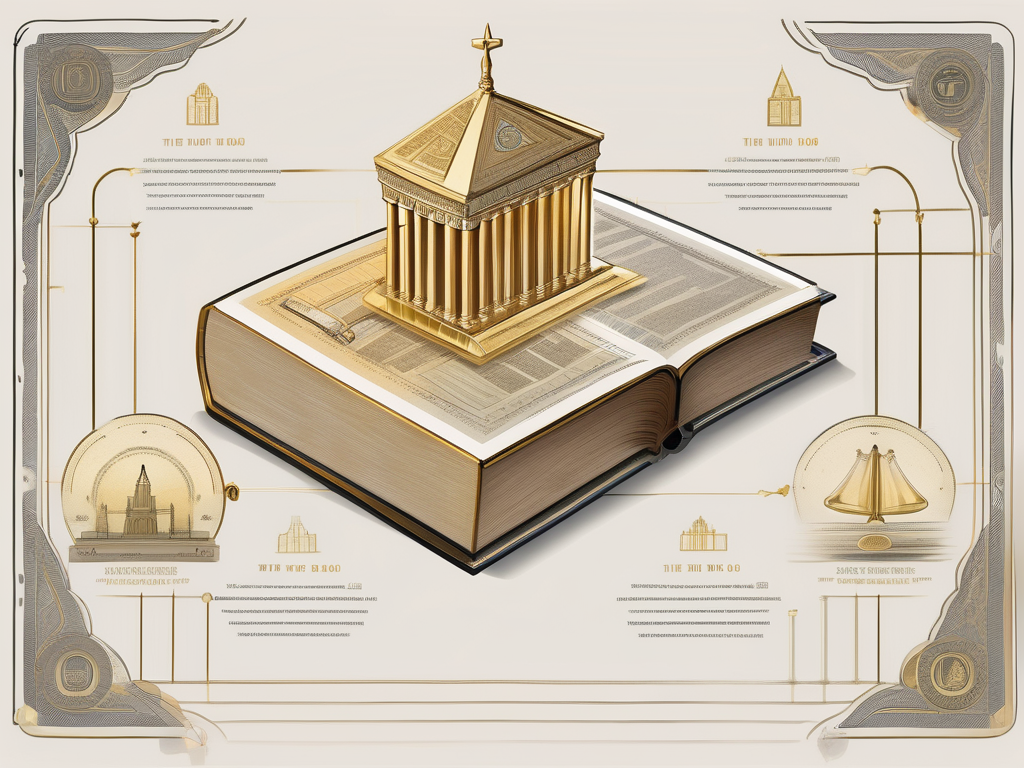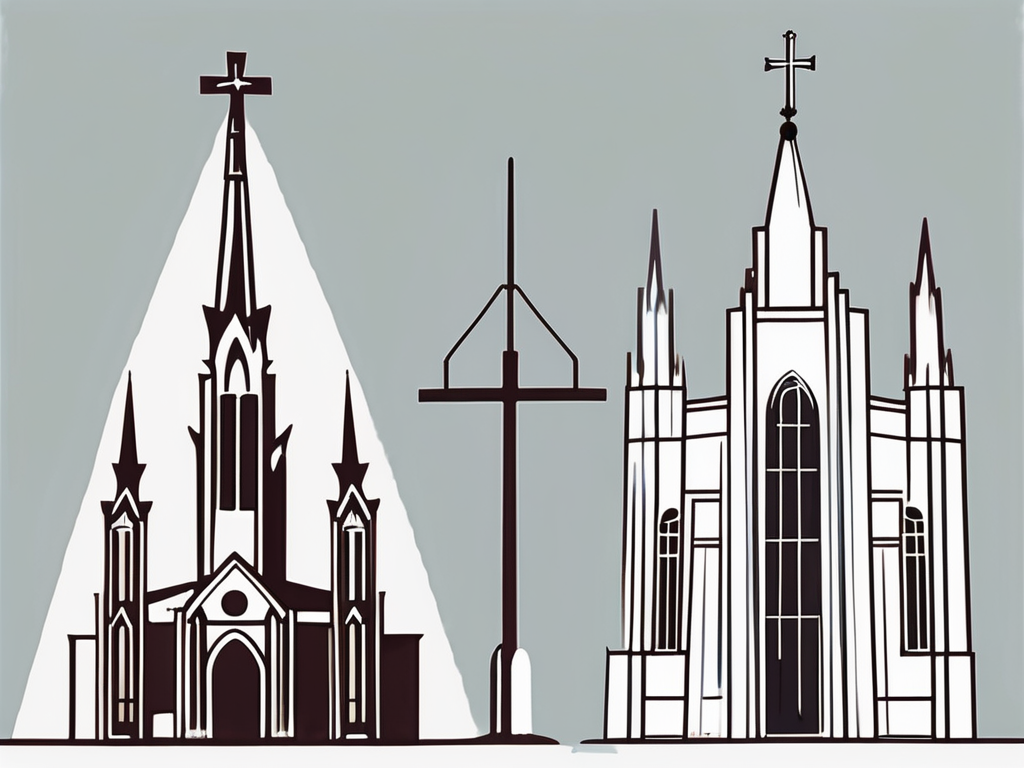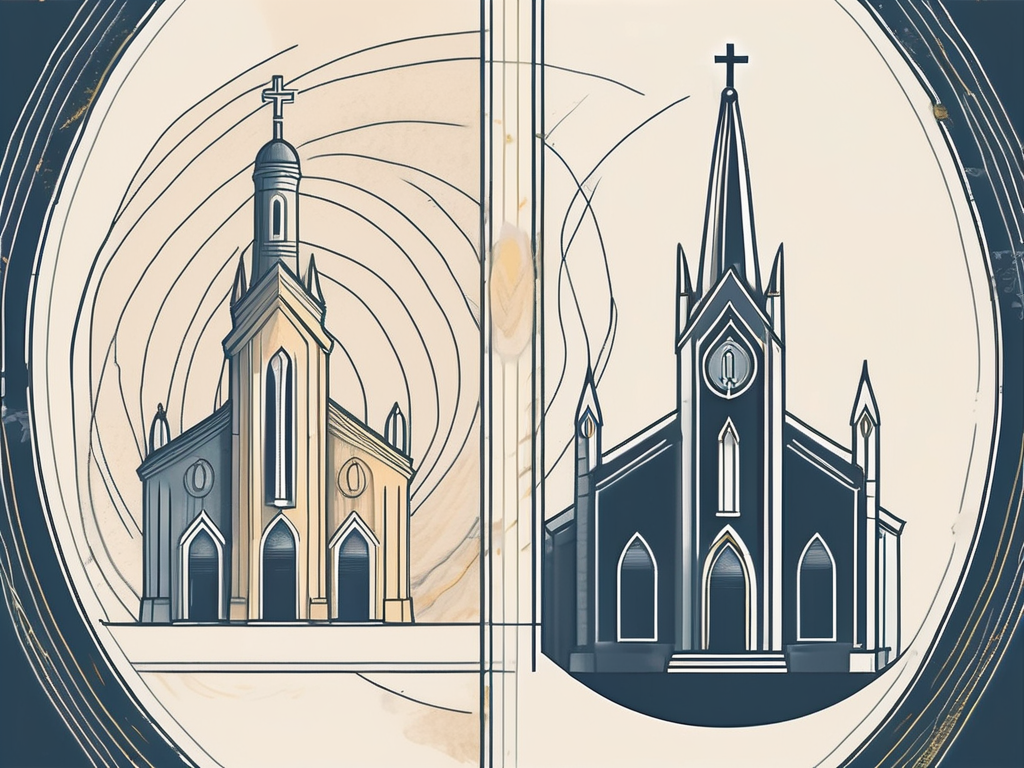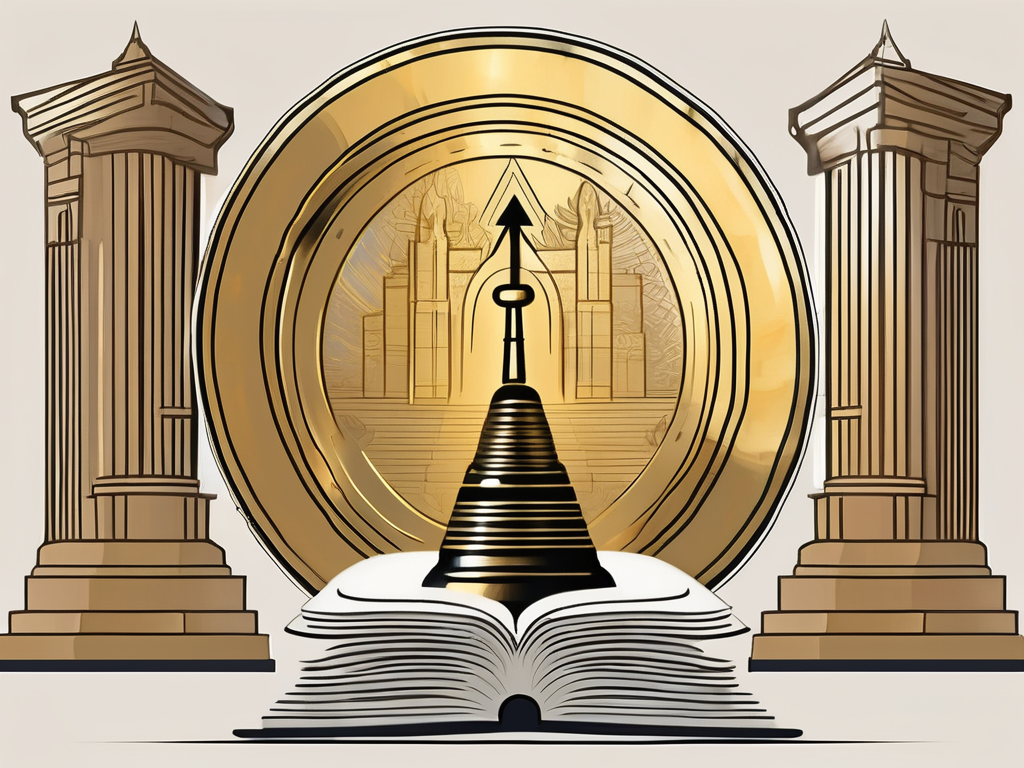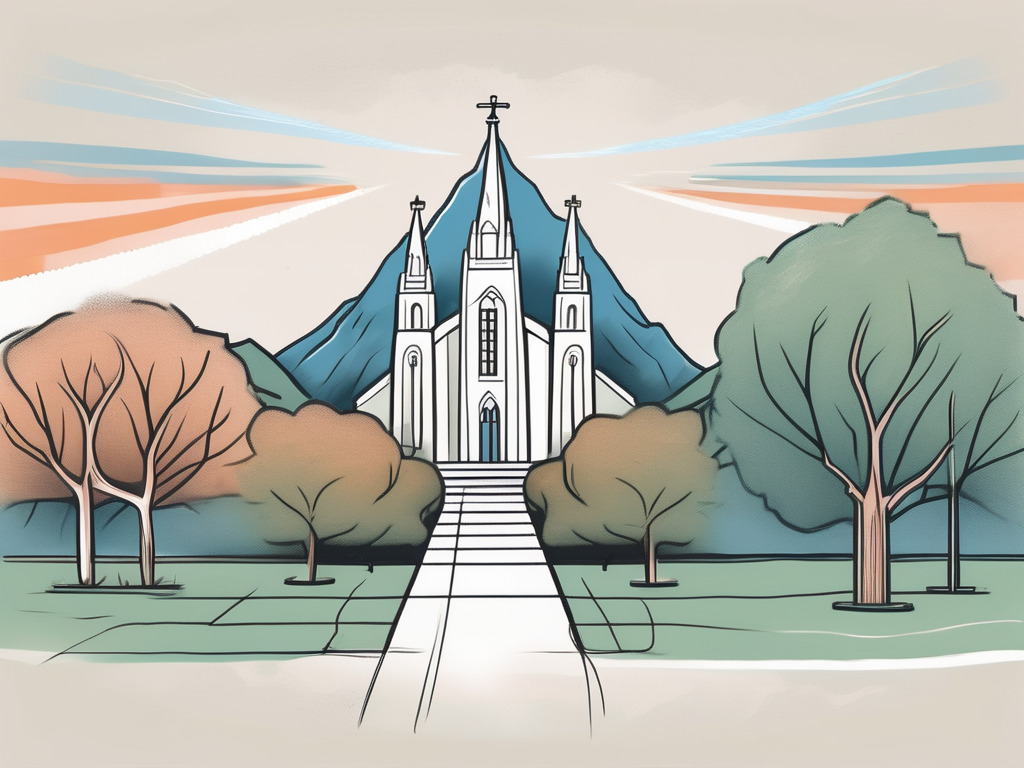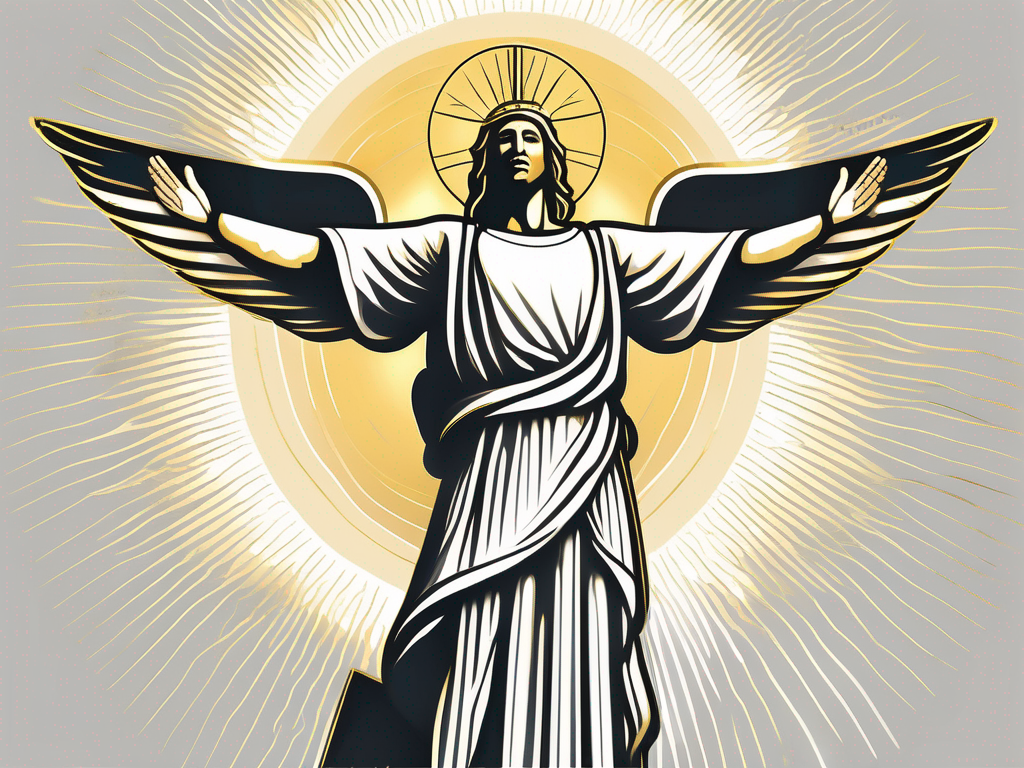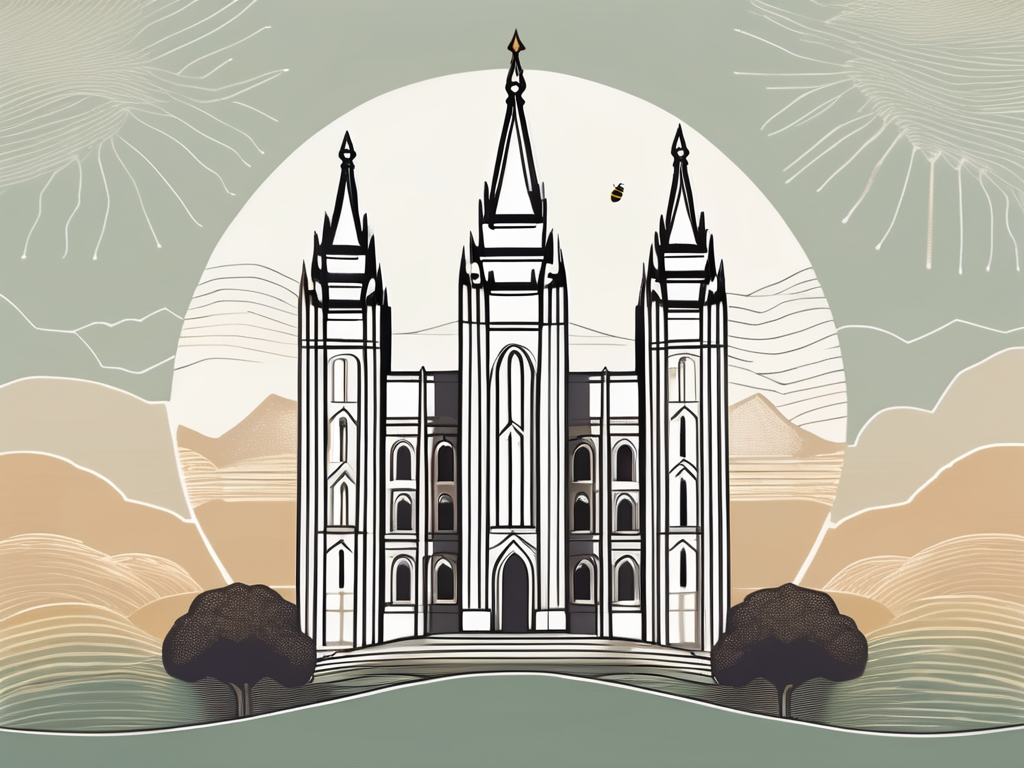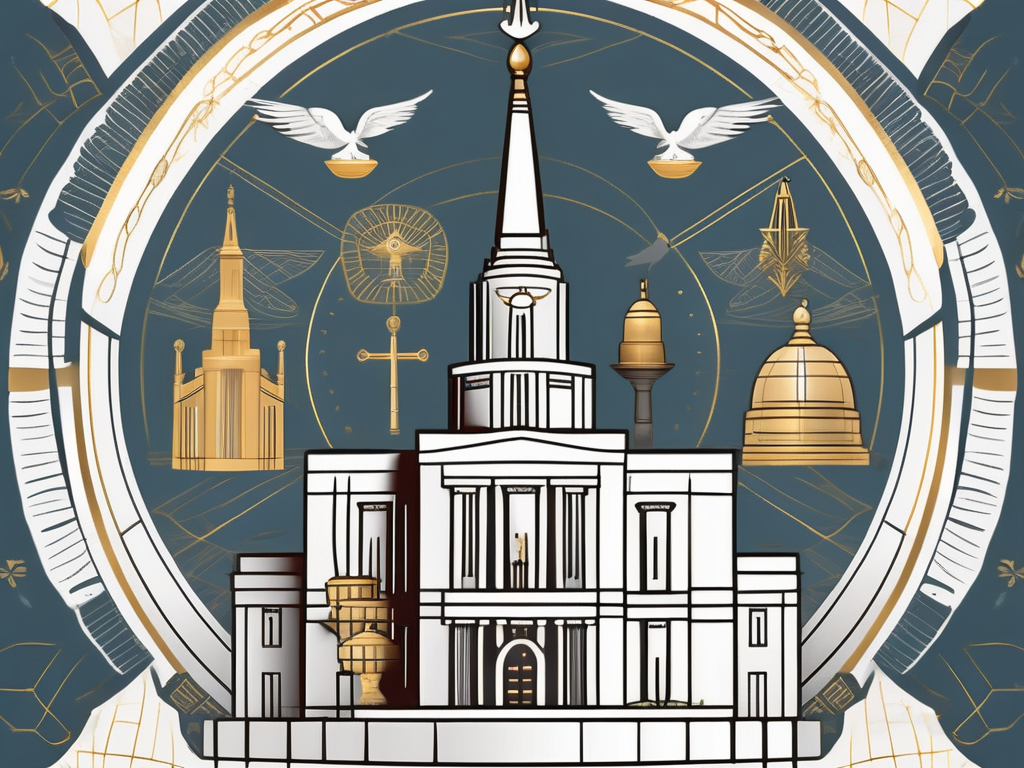Mormonism, officially known as The Church of Jesus Christ of Latter-day Saints, is a religious denomination that holds unique beliefs about the afterlife. In this comprehensive guide, we will explore the fascinating concepts, theological foundations, and controversies surrounding Mormon afterlife beliefs. Whether you are a curious individual seeking to broaden your knowledge or a member of the Mormon faith looking for a deeper understanding, this guide will provide you with valuable insights.
The Concept of Afterlife in Mormonism
Mormon afterlife beliefs are rooted in a rich theological framework that emphasizes the eternal progression of each individual soul. According to Mormon doctrine, human spirits are eternal beings who existed before birth in a realm called the pre-mortal life. This pre-mortal existence is seen as a formative period where individuals developed and made choices that greatly influenced their earthly journey.
During this pre-mortal life, Mormons believe that individuals had the opportunity to learn and grow, preparing themselves for the challenges and experiences they would face on Earth. It is believed that during this time, individuals were taught by heavenly beings and had the freedom to choose between good and evil. These choices were seen as crucial in shaping their character and determining their eternal destiny.
Upon physical death, Mormons believe that the spirit separates from the body and enters the spirit world. This intermediate state serves as a place of rest and reflection, where individuals continue to progress and prepare for their ultimate destiny. It is believed that in the spirit world, individuals have the opportunity to reunite with loved ones who have passed away and receive further teachings and guidance from heavenly beings.
Theological Foundations of Mormon Afterlife
Central to Mormon afterlife beliefs is the principle of exaltation. Mormons believe that all humans, through the grace of Jesus Christ, have the potential to become like God and inherit eternal life. This belief draws from biblical teachings that describe humanity as literal offspring of God.
Mormons view life on Earth as a crucial part of their eternal journey. It is seen as a time of testing and growth, where individuals have the opportunity to develop their faith, exercise agency, and make choices that align with God’s commandments. This concept of eternal progression aligns with Mormon interpretations of scriptures, including the Book of Mormon and Doctrine and Covenants. Mormons see life as a divine opportunity to grow spiritually, develop character, and acquire knowledge that will benefit them in the afterlife.
Furthermore, Mormons believe in the principle of eternal families. It is believed that through sacred ordinances performed in Mormon temples, families can be sealed together for eternity. This sealing ordinance is seen as crucial for individuals to progress and inherit the highest degree of glory in the afterlife.
The Three Degrees of Glory
The Mormon afterlife is characterized by the idea of different degrees of glory. Mormons believe that after the spirit world, individuals will be resurrected and receive a degree of glory based on their faithfulness and the quality of their lives on Earth.
The three degrees of glory, as described in Mormon teachings, are the Celestial Kingdom, the Terrestrial Kingdom, and the Telestial Kingdom. Each kingdom represents a different level of righteousness and happiness. The highest level, the Celestial Kingdom, is reserved for those who fully embraced the gospel of Jesus Christ and lived virtuous lives.
Within the Celestial Kingdom, there are further distinctions. The most exalted state is reserved for those who entered into eternal marriage and sealed covenants in Mormon temples. This concept underscores the significance of temples in Mormon afterlife beliefs. Temples are seen as sacred spaces where individuals can make covenants with God and receive ordinances that are essential for their eternal progression.
The Terrestrial Kingdom is described as a place of glory for those who lived honorable lives but did not fully embrace the gospel of Jesus Christ. The Telestial Kingdom, on the other hand, is a place for those who rejected the gospel and lived in varying degrees of wickedness.
The Spirit World in Mormon Beliefs
Mormons believe that the spirit world is a place of learning and growth where deceased individuals continue to progress and refine their character. It is believed that spirits have the opportunity to receive further teachings, repent from their mistakes, and even share the gospel with those who did not have the opportunity to hear it during their earthly lives.
Mormon doctrine also teaches that there is a temporary state known as paradise reserved for the righteous, where they can experience joy and peace before their final judgment. In contrast, those who rejected the gospel during their lives are believed to reside in a state called prison, where they have the opportunity to accept it and progress towards salvation.
Throughout the spirit world, individuals are given the chance to continue their spiritual growth and prepare for the resurrection. It is believed that the spirit and the body will be reunited through the power of Jesus Christ, and individuals will be judged according to their actions and desires during their mortal lives.
Overall, the concept of afterlife in Mormonism is deeply intertwined with the principles of eternal progression, agency, and the importance of family. Mormons believe that through living a faithful and righteous life, individuals can inherit eternal life and continue to progress in knowledge and glory throughout the eternities.
The Role of Jesus Christ in Mormon Afterlife
Central to Mormon afterlife beliefs is the incomparable role of Jesus Christ. Mormons view Him as the literal Son of God and the Savior of mankind, whose atoning sacrifice and resurrection are pivotal for individual salvation and eternal life.
But what does it mean for Jesus to be the literal Son of God? According to Mormon theology, Jesus Christ is not just a great teacher or prophet, but a divine being with a unique and special relationship to God the Father. Mormons believe that Jesus was chosen and ordained before the foundation of the world to fulfill His mission as the Savior. This divine lineage gives Jesus the authority and power to redeem and save all those who accept Him.
The Atonement and Resurrection
In Mormonism, the Atonement of Jesus Christ is seen as the great act of love that reconciles humanity with God. Through His suffering in the Garden of Gethsemane and His crucifixion, Jesus carried the sins and pains of all mankind, enabling repentance, forgiveness, and redemption.
But the Atonement is not just a one-time event in Mormon theology. It is an ongoing process that extends to every individual who has ever lived or will live on this earth. Mormons believe that through the Atonement, Jesus not only paid the price for our sins but also understands and can heal our deepest sorrows, pains, and afflictions. His sacrifice is not limited to a select few, but encompasses the entire human family.
Mormons believe in the universal resurrection of all individuals, made possible by the victory of Christ over death. This resurrection is a reunification of the spirit and the body, which Mormons see as essential for the eternal progression of each individual.
But what does this mean for our physical bodies? Mormons believe that the body is a sacred creation of God and that it plays a crucial role in our eternal destiny. Through the resurrection, our bodies will be perfected and glorified, free from disease, disability, and imperfections. This physical resurrection allows us to continue our eternal journey and progress in the presence of God.
The Judgment and Role of Christ
Mormon doctrine affirms that after the resurrection, all individuals will face a personal judgment conducted by Jesus Christ. This judgment is seen as an opportunity for individuals to account for their thoughts, words, and deeds during their mortal lives.
However, Mormons perceive this judgment not only as a moment of accountability but also as an act of divine mercy and understanding. They believe that Christ, through His perfect knowledge and unconditional love, will judge each person according to their unique circumstances, intentions, and level of knowledge.
But what does this mean for those who have never heard of Jesus Christ or had the opportunity to accept Him in mortality? Mormons believe in the concept of postmortem salvation, where those who did not have a chance to accept the gospel in this life will have the opportunity to do so in the spirit world. They believe that Jesus, as the Savior, will extend His mercy and offer salvation to all those who have not had a fair chance to hear and accept His message.
The role of Jesus Christ in the Mormon afterlife is one of love, redemption, and eternal progression. He is not only the Savior of mankind but also the compassionate judge who understands our individual circumstances and desires our eternal happiness. Through His Atonement and resurrection, He offers us the opportunity to overcome sin, find healing, and ultimately return to the presence of God.
The Importance of Temples in Mormon Afterlife Beliefs
Temples hold immense significance in Mormon afterlife beliefs, serving as sacred and holy spaces where special ordinances are performed. These ordinances are seen as essential for individual spiritual growth, salvation, and exaltation.
Baptisms for the Dead
One of the most distinct practices in Mormon temples is the performance of baptisms for the dead. Mormons believe that individuals who did not have the chance to receive the saving ordinances of baptism during their mortal lives can have these ordinances performed on their behalf by proxy.
Through the restoration of ancient priesthood authority, Mormons believe that deceased individuals in the spirit world have the opportunity to accept or reject these vicarious baptisms, giving them the chance to embrace the gospel and progress towards salvation.
Eternal Marriage and Family
Mormon temples also provide the opportunity for eternal marriages and sealings, which Mormons consider essential for eternal progression and exaltation. Mormons believe that families can be united for eternity through sacred ordinances performed in the temple.
Within this eternal marriage framework, Mormons see the family unit as central to their afterlife beliefs. Mormons believe that individuals who have demonstrated faithfulness and lived according to gospel principles can be reunited with their loved ones and continue their eternal progression as an eternal family unit.
The Plan of Salvation in Mormonism
At the core of Mormon afterlife beliefs is the belief in a grand plan of salvation, also known as the plan of happiness or the plan of redemption. This plan, according to Mormon teachings, was designed by God and presented to His children in the pre-mortal existence.
Pre-mortal Life and the Purpose of Earthly Existence
Mormons perceive life on Earth as a critical part of their eternal journey. They believe that in the pre-mortal life, each individual had the opportunity to develop and progress towards becoming like God. Earthly existence is seen as a necessary step in this progression, providing the opportunity to gain a body, exercise agency, and learn through experiences.
Mormons consider mortal life as a time of testing, growth, and refinement. They believe that through their choices and experiences, individuals can embrace the gospel, develop divine attributes, and prepare themselves for the challenges and blessings of the afterlife.
The Role of Free Will and Personal Growth
Mormon afterlife beliefs emphasize the importance of agency and personal accountability in the plan of salvation. Mormons believe that God respects the individual’s freedom to choose and that the choices made during mortal life have eternal consequences.
Mormon theology encourages personal growth, moral development, and the pursuit of knowledge. Mormons strive to align their choices with God’s commandments and develop attributes such as love, honesty, patience, and faith. Through this process, believers hope to become more like their Heavenly Father and progress towards their ultimate destiny.
Controversies and Misunderstandings about Mormon Afterlife
Mormon afterlife beliefs have faced misconceptions and controversies throughout history. Let’s address some of the common misunderstandings and explore the theological differences between Mormons and other Christian denominations.
Addressing Common Misconceptions
Mormon afterlife beliefs often raise questions and misunderstandings. It is important to separate fact from fiction and approach these beliefs with accurate information. Mormonism teaches a message of hope, eternal progression, and the potential for all individuals to achieve happiness and salvation.
Theological Differences with Other Christian Denominations
Mormonism differs from many mainstream Christian denominations in its understanding of the afterlife. Unique beliefs, such as the plan of salvation, eternal progression, and the importance of temples, contribute to the distinctive nature of Mormon afterlife beliefs.
Understanding these differences can foster dialogue and mutual respect among people of different faiths. By gaining a comprehensive understanding of Mormon afterlife beliefs, we expand our appreciation for religious diversity and enrich our own spiritual journeys.
Understanding Mormon afterlife beliefs is like embarking on a journey into the realms of theology, spirituality, and personal fulfillment. The concept of eternal progression, the three degrees of glory, the role of Jesus Christ, the importance of temples, and the plan of salvation all encompass the unique richness of Mormon afterlife beliefs. By exploring these concepts with an open mind and a respect for diversity, we can deepen our understanding of the Mormon faith and gain insights that may even resonate with our own beliefs and aspirations.

